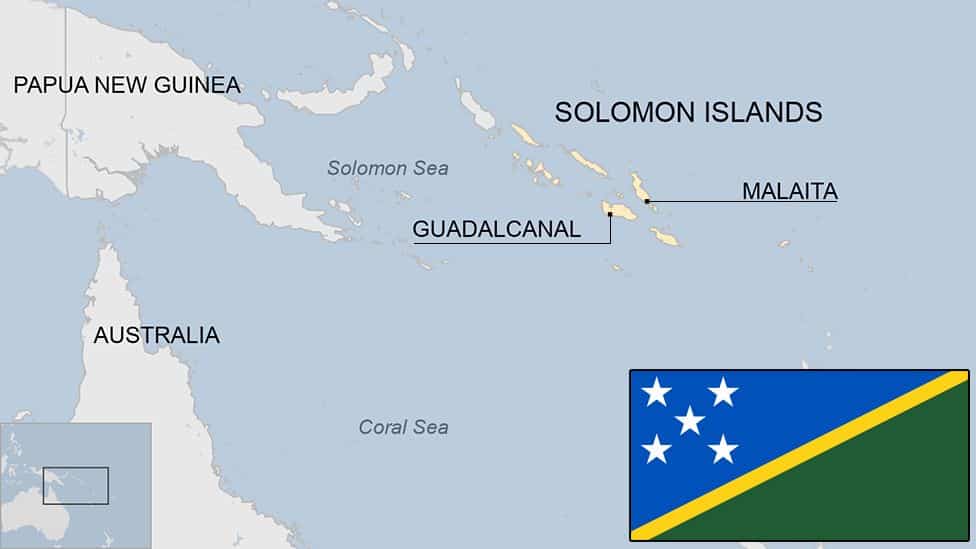Celebrating Solomon Islands Independence Day

On July 7th every year, we join together to commemorate the proud history and vibrant culture of the Solomon Islands as they celebrate their Independence Day. This annual occasion marks the monumental milestone when the Solomon Islands achieved self-governance and emerged as a sovereign nation in 1978. Led by the visionary leadership of Peter Kenilorea, the Solomon Islands embarked on a journey toward freedom, culminating in a day of national pride and reflection. Join us as we delve into the rich tapestry of the Solomon Islands’ history, from ancient origins to modern-day celebrations.
History of Solomon Islands Independence Day
The history of the Solomon Islands traces back over millennia, with the arrival of Austronesian peoples around 2000 B.C. These early settlers established thriving communities on the archipelago’s six major volcanic islands, laying the foundation for the diverse cultural heritage that defines the Solomon Islands today. Over centuries, these settlements evolved into distinct tribes, each with its own language, customs, and traditions, fostering a rich tapestry of indigenous cultures. The arrival of European explorers in the 16th century irrevocably altered the course of the Solomon Islands’ history. Spanish explorer Alvaro de Mendana de Neira’s discovery of the islands in 1568 marked the beginning of European contact, leading to the introduction of foreign influences and the eventual colonization of the region. Subsequent visits by British explorers, including Philip Carteret in 1767, further shaped the islands’ destiny, paving the way for increased European presence and influence.
The 19th and early 20th centuries witnessed the establishment of colonial administrations in the Solomon Islands, with various European powers vying for control over the strategically significant archipelago. From German protectorates to British-controlled territories, the islands became entangled in the geopolitics of empire-building. However, it was during World War II that the Solomon Islands emerged onto the global stage, becoming a battleground for conflict between Allied and Japanese forces. Amidst the turmoil of war, the desire for self-determination began to take root among the people of the Solomon Islands. Inspired by the principles of freedom and sovereignty, leaders like Peter Kenilorea rallied their fellow countrymen in the struggle for independence. After years of advocacy and negotiation, the Solomon Islands finally achieved independence on July 7, 1978, marking a new chapter in their history and a triumph of the human spirit.
- 2000 B.C.: The First Settlements by Austronesian people.
- 1886 – 1893: The German Era, when the Solomon Islands became a German protectorate.
- July 7, 1978: Solomon Islands Independence, marking the birth of a sovereign nation.
- 1998 – 2003: Australian assistance through mission RAMSI to end internal tribal conflicts.
Celebration of Solomon Islands Independence Day
Today, the Solomon Islands Independence Day stands as a testament to the resilience and determination of the Solomon Islands people. It is a day of celebration, reflection, and national unity, honoring the sacrifices of those who came before and reaffirming the country’s commitment to freedom and democracy. From vibrant cultural festivities to solemn remembrance ceremonies, the day is marked by a diverse range of activities that showcase the rich tapestry of the Solomon Islands heritage.
- Raise the Flag: Display the flag of the Solomon Islands with pride.
- Learn the Songs: Explore the rich musical heritage of the Solomon Islands by learning traditional songs.
- Experience the Beauty: Visit the Solomon Islands to experience its stunning natural landscapes and vibrant culture firsthand.
5 Fascinating Facts About the Solomon Islands
- Uninhabited Islands: Approximately half of the smaller islands in the Solomon Islands remain uninhabited.
- King Solomon Connection: The islands were named by Alvaro de Mendana de Neira, who believed they were the source of wealth for the biblical King Solomon.
- Marovo Lagoon: The Solomon Islands is home to Marovo Lagoon, the largest saltwater lagoon in the world.
- Coastline Beauty: With over 3,300 miles of coastline, the Solomon Islands boast pristine beaches and crystal-clear waters.
- Active Volcano: Kavachi, a submarine volcano in the Solomon Islands, is one of the world’s most active underwater volcanoes.
The Solomon Islands Independence Day serves as a poignant reminder of the enduring human quest for freedom and self-determination. It celebrates the diverse tapestry of cultures that enrich the nation and honors the sacrifices of those who fought for independence. More than just a historical event, it is a symbol of hope, unity, and resilience for generations to come.
Solomon Islands Independence Day
- 2024: July 7th (Sunday)
- 2025: July 7th (Monday)
- 2026: July 7th (Tuesday)
- 2027: July 7th (Wednesday)
- 2028: July 7th (Friday)
FAQs about Solomon Islands Independence Day
Is the Solomon Islands an independent country?
Yes, the Solomon Islands is an independent sovereign nation with Queen Elizabeth II as its constitutional monarch.
What is the capital of the Solomon Islands?
The capital of the Solomon Islands is Honiara.
What race are Solomon Islanders?
The majority of Solomon Islanders are ethnically Melanesian, with significant Polynesian and Chinese populations.
Observer Voice is the one stop site for National, International news, Sports, Editor’s Choice, Art/culture contents, Quotes and much more. We also cover historical contents. Historical contents includes World History, Indian History, and what happened today. The website also covers Entertainment across the India and World.

